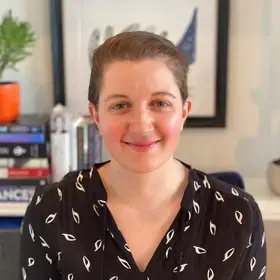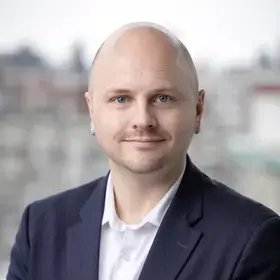The M.S. Nonprofit Management program recently hosted author and scholar Dr. Lucy Bernholz at a recent Master Class, “Digital Civil Society and Democracy: How We Got Here and Where We Need to Go,” where Dr. Bernholz argued that corporate-owned, government-monitored software and platforms have compromised the independence of democratic civil society and urged nonprofit, public sector players to reclaim it.
Dr. Bernholz, the director of Stanford University’s Digital Civil Society Lab and Senior Research Scholar at the Stanford Center on Philanthropy and Civil Society, discussed the degree to which technology companies —including Google, Facebook, and Zoom — have colonized the spaces we inhabit, both virtually and physically. According to Dr. Bernholz, this new reality and reliance on technology under corporate control threatens our society’s right to assemble, protest, or simply participate in civic democracy.
“We’re tenants in these digital spaces, and we have very few rights and even less awareness of how constrained the space actually is,” she said.
The key to restoring the independence of our civil society is to stake our public claim to the digital infrastructure that enables technology giants to encroach on our lives: “[They are] not the infrastructure. Those are the companies that have been built on it, but they're acting like the infrastructure and we need to take the infrastructure back,” Dr. Bernholz explained.
In addition to encouraging “every nonprofit and every foundation and every civil society actor of any sort” to push for implementation of universal public broadband, Dr. Bernholz emphasized the need to explore alternative platforms and software options, different organizational structures beyond the 501(c)(3), and new policies for protecting our civil society.
“We're the ones who are going to invent these alternatives, because the industry has already shown us what they'll build, and we know what the government wants,” she said. “If we want technologies and we want policies that actually protect our ability to express ourselves, assemble and associate, they're going to come from us. It is on us to do this work.”


